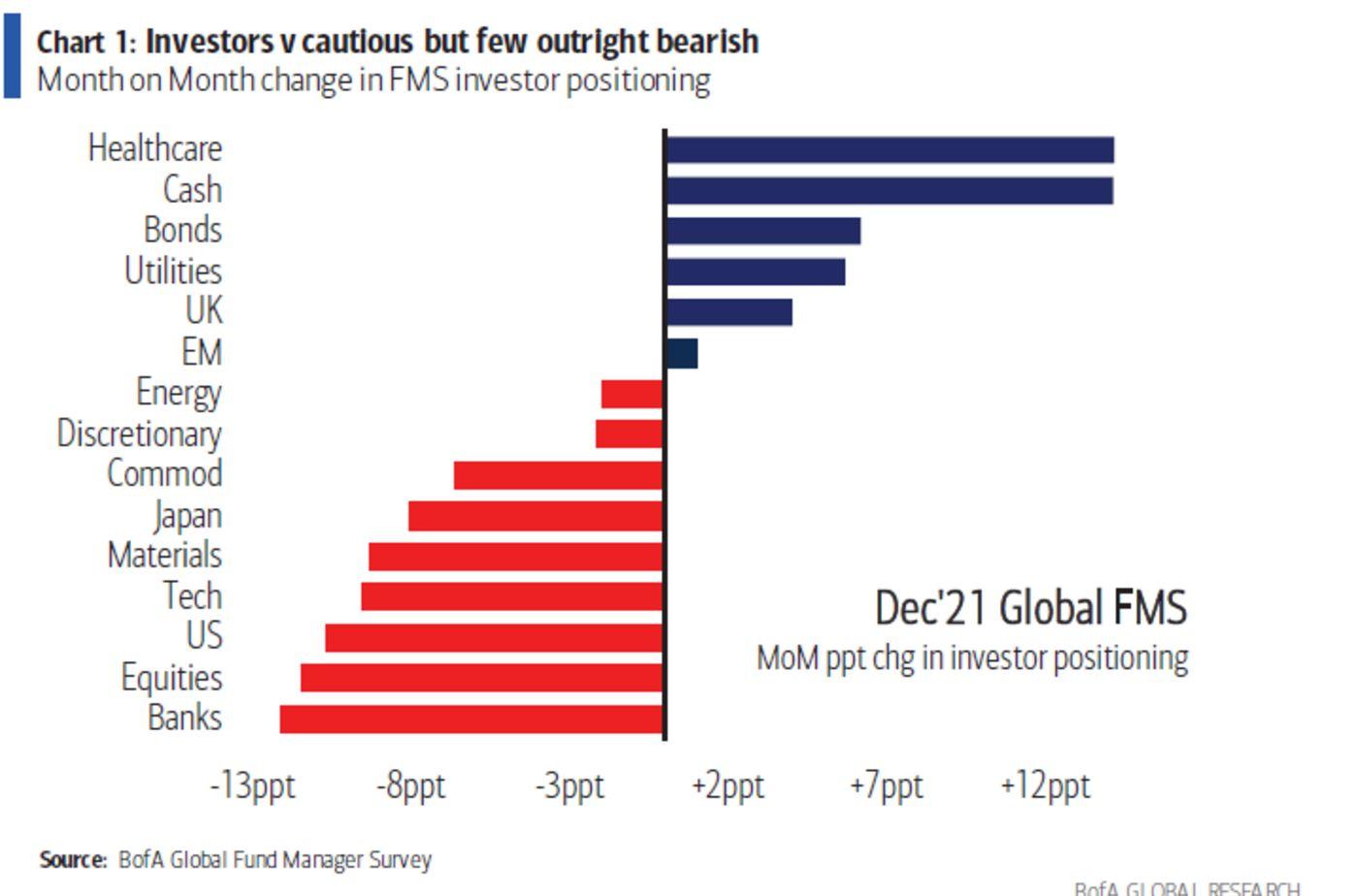Bank of America Corp.'s last fund manager survey of the year showed that due to the risk of the epidemic and the monetary policy meetings of many central banks, fund managers around the world flocked to hoard cash reserves in December. Markets expect the Fed to adopt a more aggressive monetary policy, prompting investors to adopt a more defensive asset allocation strategy.
Bank of America surveys showed that investors' cash allocation increased by 14 percentage points this month from November, and the net increase in holdings was 36%, the highest since May 2020. While equity investment remains above the historical average, equity positions among market participants have fallen to their lowest levels since October 2020.

Michael Hartnett, a strategist at Bank of America, said the surge in cash levels triggered the bank to signal a stock market buy. "Investors are very cautious, but there are almost no direct bearishes." They wrote in a report.
The Bank of America survey showed that for the first time since May 2018, the hawkish central bank was seen as the biggest tail risk, followed by inflation and a rebound in the pandemic.
Coincidentally, an informal survey released recently by Bloomberg also showed that a rush to curb inflation by central banks that rush to curb inflation will be the biggest downside risk to global stock markets next year if they rush to implement a policy shift.
Traders are awaiting the Fed's policy decision, which will be released on Wednesday, for clues about the speed of the decrement and the timing of the rate hike. The Fed is one of 20 central banks meeting this week.
Investors expect the Fed to raise rates twice in 2022, with 90 percent of respondents expecting the Fed to tighten policy before the first half of 2023, and the average expectation for the timing of the first rate hike is July 2022.
In addition to the massive cash hoarding, investors have also increased their holdings in healthcare stocks and reduced their holdings in assets that may be at risk of interest rate hikes, including bonds and emerging markets, the survey shows. In addition, the most "crowded" trades in December were going long technology stocks, going long bitcoin, and going long ESG.
The survey also revealed that while fund managers turned to more defensive assets in December, they were far from panic-ridden. Investor optimism about global growth and corporate earnings has improved, predicting that rate hikes will hit inflation rather than a recovery.
A majority of investors (55 percent) believe inflation is temporary, with only 6 percent expecting a recession over the next 12 months.
Bank of America's survey was conducted Dec. 3-9 with 330 investors and $986 billion in assets under management.